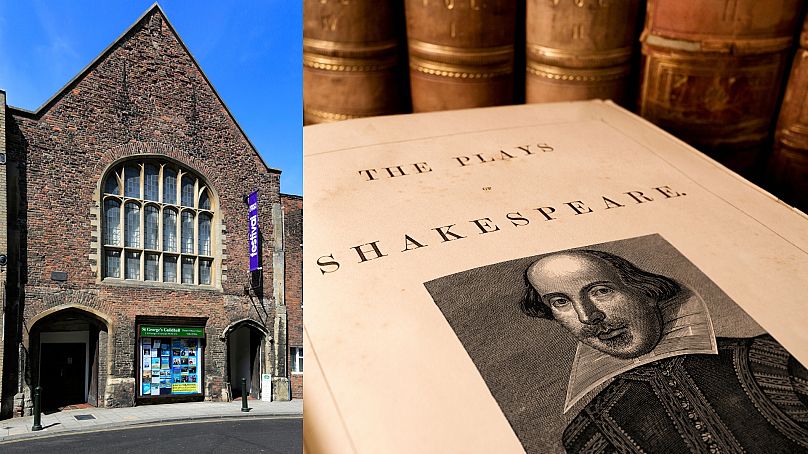The oldest running theatre in the UK has uncovered some of the original floorboards, on which the actual William Shakespeare acted.
“All the world’s a stage” Shakespeare wrote in ‘As You Like It’. But it turns out, there might be an actual stage remaining where the man himself stood on.
St. George's Guildhall in King's Lynn, Norfolk is the oldest running theatre in the UK. Founded as an artists’ guild in 1376 and completed in 1420, it has been used as a theatre since 1445.
What makes St. George’s Guildhall extra special, is that it’s the only known remaining theatre where William Shakespeare performed himself. In either 1593, the playwright acted as part of The Earl of Pembroke's Men theatre company.
The Guildhall is currently under renovation and it was during these works that old floorboards were discovered, having been covered up for 75 years.
It’s believed that these floorboards date back to between 1417 and 1430, making them the same floorboards that Shakespeare would have trodden on when he performed.
Building historian Dr Jonathan Clark noted: “We know that these [floorboards] were definitely here in 1592, and in 1592 we think Shakespeare is performing in King's Lynn, so this is likely to be the surface that Shakespeare was walking on,” while speaking to the BBC. “It's this end of the hall where performances took place.”
The belief that Shakespeare would have performed in the King’s Lynn theatre comes from historical evidence of many theatre companies touring the country at a time when London was ravaged by the plague.
Additionally, Shakespeare’s leading comic actor Robert Armin was born just around the corner in 1565. Norfolk was also the home of the Elizabethan dramatist Robert Greene who infamously attacked Shakespeare’s work in a pamphlet, calling him an “upstart crow”.












